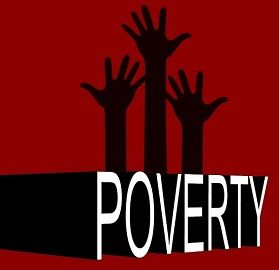 Economic Cycle implies the economy-wide ups and downs in the economic activity, like savings, investment, income and employment over a certain period. There are several stages of the economic cycle, namely, boom/inflation, slowdown, recession, depression, and recovery. As recession and depression both refer to the period of credit crunch experienced by the economy, people often juxtapose recession for depression, but these are two different phases. Recession signifies a decline in the real national output, meaning that economic growth is negative. A prolonged recession in the economy will result in Depression.
Economic Cycle implies the economy-wide ups and downs in the economic activity, like savings, investment, income and employment over a certain period. There are several stages of the economic cycle, namely, boom/inflation, slowdown, recession, depression, and recovery. As recession and depression both refer to the period of credit crunch experienced by the economy, people often juxtapose recession for depression, but these are two different phases. Recession signifies a decline in the real national output, meaning that economic growth is negative. A prolonged recession in the economy will result in Depression.
The recession is suffered by a country’s economy, but one or more economies may experience depression. The Recession is comparatively less critical than Depression. It is all about how long the condition of the economy will remain same. In this article, our main focus is to discuss the main differences between recession and depression.
Content: Recession Vs Depression
Comparison Chart
| Basis for Comparison | Recession | Depression |
|---|---|---|
| Meaning | Recession is defined as a period when there is a downfall in the economic activity of the country, resulting in the fall in the country's GDP. | The situation when there is sustained and drastic recession in the economy, it is known as depression. |
| What is it? | Cause | Effect |
| Criterion | Negative GDP for two successive quarters | 10% or more decrease in real GDP |
| Occurrence | Frequent | Rare |
| Strikes | Different countries at different times. | World economy as a whole. |
| Effect | Severe | More severe and may continue for a long time |
| Unemployment Rate | Low | High |
Definition of Recession
Recession refers to a phase of the downturn in the economic cycle when there is a fall in the country’s Gross Domestic Product (GDP) for some quarters. It appears in the slowdown of economic activity in the economy for a few months. It may result in the fall in employment, industrial production, corporate profits, GDP, etc.
When there is a decline in consumer demand the companies will not be able to expand their business, and they stop recruiting personnel. As a result of that, unemployment will rise in the economy and after sometimes lay off begin. Meanwhile, the recession phase will start. In this way, the consumer spending will further decline, and housing prices may fall.
The recession may cause severe problems in the economy. For overcoming this situation, the government may increase the money supply in the economy and liberalize monetary policies. It can be possible by decreasing interest rates and taxation, to increase public spending.
Definition of Depression
When recession, turns out to be more severe and continues for a long term, in one or more economies, the situation is known as Depression. The basic rule of analyzing depression is that when there is a negative GDP of 10% of more, lasting for more than three years.
Depression may result in price deflation, bankruptcies, bank failures, unemployment, financial crisis, business failures, etc. It may lead to the shutdown of the economy. The main indicators of depression are as under:
- High level of unemployment.
- The contraction in the economic activities.
- Increase in Bankruptcies.
- Decline in credit availability.
- Fall in industrial production and investments.
- High level of fluctuations in the value of currency, because of devaluation.
Example: The Great Depression in 1929, Greek Depression in 2009.
Key Differences Between Recession and Depression
The major differences between recession and depression are given below:
- When the economic activities of the country decline, due to which the GDP falls for a few months is known as Recession. Depression is when there is a continuous and drastic downturn in the country’s economy.
- Depression is nothing but an advanced form of recession.
- The essential criterion for recession is the Negative Gross Domestic Product (GDP) for two consecutive quarters. Conversely, in the case of depression, there is 10% or greater fall in the Gross Domestic Product and lasts more than three years.
- According to the principle of booms and busts, the recession is considered as an economic cycle, and it occurs frequently. As opposed to depression, when is rare to occur.
- A recession occurs in different countries at a different period. On the other hand, Depression strikes the world economy at the same time.
- Depression is comparatively more severe than a recession.
- In a recession, the unemployment rate generally reaches 10% which goes up to 20% or more where there is a depression.
Conclusion
After the deep discussion, we can say that both the recession and depression, uncertain situation for any country’s economy. The recession is somewhat controllable, but Depression is an intense form of recession. It is not easy for any country to cope up with the economic depression.






bikesh bishal says
one of the nice article on the difference between Recession Vs Depression
Thanks for this